United States

By the time he was 26, Michael Tigar was a legend in legal circles well before he would take on some of the highest-profile cases of his generation. In his first U.S. Supreme Court case—at the age of 28—Tigar won a unanimous victory that freed thousands of Vietnam War resisters from prison. A relentless fighter of injustice—not only as a human rights lawyer, but also as a teacher, scholar, journalist, playwright, and comrade—Tigar has been counsel to Angela Davis, Jamil Abdullah Al-Amin (H. Rap Brown), the Chicago Eight, and leaders of the Black Panther Party, to name only a few. It is past time that Michael Tigar wrote his memoir. | more…

The Dirty Fight for Prop 22 and the Gig Economy
On California’s November 2020 ballot were some contentious and important issues, including Proposition 22, classifying rideshare drivers and app-based delivery workers as independent contractors. Gig economy giants Uber, Lyft, Doordash, and others spent a whopping $111 million on Prop 22. Of course, the companies had a lot to lose. If they were made to treat their drivers or delivery people as employees and compensate them accordingly, they would be bankrupted, they claimed. | more…
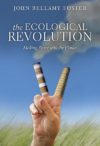
The Ecological Revolution was first published a little more than ten years ago in April 2009, at a time when climate change had already been recognized as a pressing global issue for over two decades, but when there was still hardly any realistic discussion of its connection to capitalism or of the immense ecological and social revolution that would be required to overcome the Earth System crisis. Let us look back to understand the historical gulf separating that time from our own. | more…
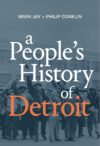
It is a testament to the clarity and scope of Mark Jay and Philip Conklin’s vision that A People’s History of Detroit is replete with insights for those trying to make sense of these deeply uncertain and troubling times. In it, Jay and Conklin show that “in order to give a true ‘people’s history,’ one must do more than condemn the malevolence of those in power and celebrate the activists who have struggled for justice; one must also come to terms with the social system in which these people lived. In our case, this means confronting the logic of capital.” | more…
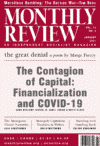
We are extremely pleased to announce that John Bellamy Foster, editor of Monthly Review, has won the prestigious Deutscher Memorial Prize for 2020 for his The Return of Nature: Socialism and Ecology. | more…

The Korean War, which broke out on June 25, 1950, can be considered the epicenter of bombing as an instrument of war. For one, it was the first—and, so far, the last—time since 1945 that the United States seriously considered using atomic weapons during the course of an imperial war. It was the first war that the United States did not win. It ended in a stalemate—an armistice—that continues until today. Kinetic fighting was suspended, but the war continues (though only by one side) by what is conveniently but simplistically called sanctions. | more…
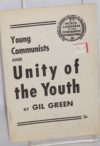
Gil Green was a revolutionary who became J. Edgar Hoover’s “most wanted man in America” until voluntarily surrendering to authorities in February 1956. He lived a life of integrity and courage. | more…
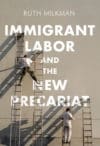
Ruth Milkman’s latest book is a strong scholarly response to the “immigrant threat” narrative that has been central to U.S. politics in the last decades. In Immigrant Labor and the New Precariat, the distinguished labor and migration scholar has a clear goal: to reframe the conversation about migration and increased inequality in the United States, reversing the causal relation that blames migration for the U.S. working class’s current perils. | more…
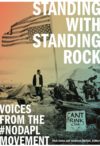
The story of the Indigenous movement to stop the Dakota Access Pipeline in 2016 and 2017 has been the subject of numerous articles and documentaries, many of which depict it mainly as an environmental and climate justice campaign to stop the pipeline from crossing the Mni Sose (Missouri River), just north of the Standing Rock Sioux Reservation in North Dakota. Nick Estes and Jaskiran Dhillon’s edited collection Standing with Standing Rock tells a richer and more complex story of decolonization and indigenization from the frontlines. | more…
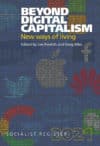
Every year since 1964, the Socialist Register has offered a fascinating survey of movements and ideas from the independent new left. This year’s edition asks readers to explore just how we need to live with new technologies. Essays in this 57th Socialist Register reveal the contradictions and dislocations of technological change in the twenty-first century. And they explore alternative ways of living: from artificial intelligence (AI) to the arts, from transportation to fashion, from environmental science to economic planning. | more…
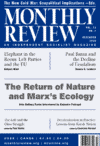
The United States is now in a New Cold War with Russia and China, with the focus increasingly on the latter and involving a direct challenge to U.S. hegemony over the world economy. | more…

Lessons from Karuk Nation
Fundamental to Kari Marie Norgaard’s Salmon and Acorns Feed Our People is the seizure of land most evident in the overtly violent era of state-sanctioned frontier genocide and forced relocation of the Karuk. Settler colonialism, Norgaard reminds us, is an ongoing state-led project up to this day—it is not just a moment relegated to the past and, thus, the inherent treatment of Native Americans as relics of U.S. history must be challenged. | more…











